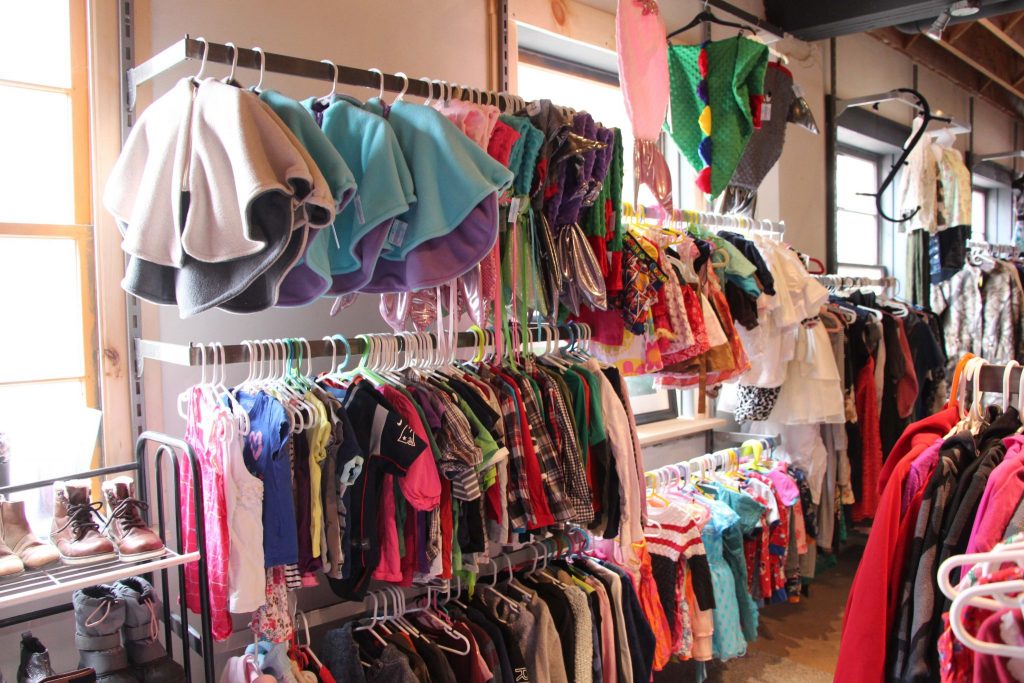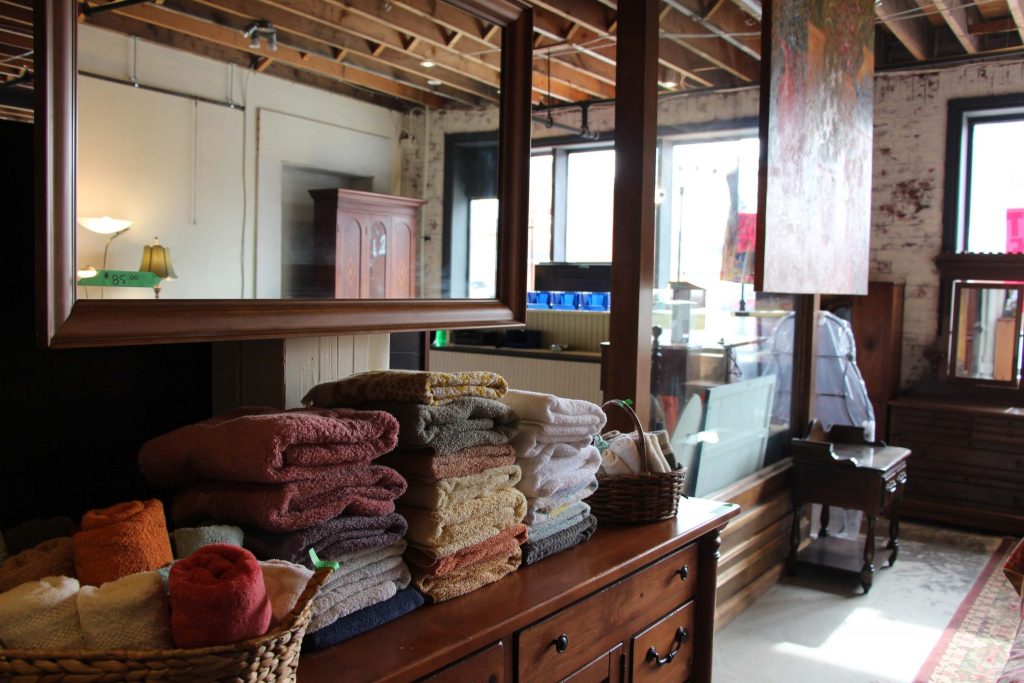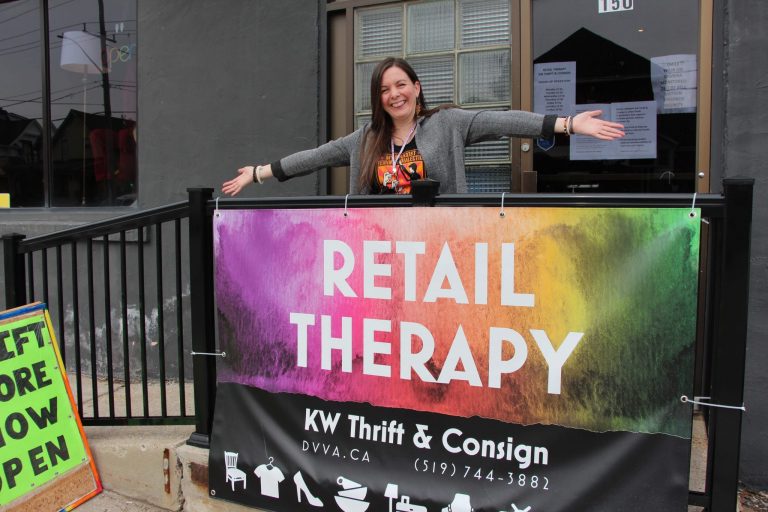The Domestic Violence Victims’ Alliance (DVVA) was founded in 2022 by Amanda Kroetsch as an organization to support survivors of domestic violence, specifically through the funding of their mental health, medical, and legal fees.
In mid-March, DVVA launched Retail Therapy, a thrift and consignment store that aids the organization’s ability to support domestic violence survivors. Their brick -and mortar -location is 150 Victoria Street South, Kitchener. The stock of clothing is organized by size instead of gender, and the store is focused on being sex -positive, LGBTQ-friendly and size-inclusive.
“I’m a survivor myself, and I’m currently on disability as a result of the injuries I sustained from the assaults and the relationship,” Kroetsch said.
“Retail Therapy is also a way for me to get back on my feet as a survivor.”
Money raised by Retail Therapy goes to supporting domestic violence survivors, but items that are not sold are also used to support them. Retail Therapy partners with Shelter Movers, an organization that helps domestic violence survivors leave their abusive situation safely.


Shelter Movers tells Retail Therapy about the needs of a client they are helping, and Retail Therapy provides them with donated items such as a sofa or clothes.
“My main focus right now is to try to bring in volunteers and a partner with other organizations that can help support what I’m building and what we do can support them as well,” said Kroestch.
Kroestch started DVVA after her own experiences with domestic violence, which led to her filing for bankruptcy as a result of her injuries after having to spend her life savings on medical, mental health and legal fees.
“I needed thrift stores. I’ve always been a thrifter my whole life. Love it. Can’t get enough of it. But I’ve never had to thrift for necessity, and I found [myself] thrifting both for need because of the price point, but I also found thrifting very therapeutic,” said Kroestch.
Kroestch compares her experiences thrifting to the process of art therapy used to treat brain injury and PTSD.
“One of the aims [of art therapy] is to get your brain hyper-focused on something, but in a creative space so that your brain is not focusing on the trauma. And so I found that, like I would during the pandemic, I would wander the thrift stores and be around people, but not having to interact with people. Being out of the house and also just, you know, looking for things, that for me felt very therapeutic,” Kroestch said.
Though Kroestch experienced the act of thrifting at stores like Value Village and Goodwill as therapeutic, she found their prices prohibitive for someone who needed thrifting to survive. She has strived to address this issue in the management of Retail Therapy.
Kroestch got into thrifting from the seller side in order to recover financially from the results of her abuse.
“I started by shopping at thrift stores or messaging people to see if they would be willing to donate their leftover garage sale items or anything they might be considering taking to Value Village or Goodwill donating to me, and then I would sell those items at my own garage sale or on Facebook Marketplace to try to raise money for my own bills, my groceries, things like that. That went really well,” said Kroestch.
Kroestch sold these items in exchange for donations rather than a fixed price in order to accommodate people who could not afford higher prices. She was eventually donated a booth by the Kitchener Market.
“I want people to know that I’m still in my own recovery from domestic violence. I am doing my best to get back on my feet in the ways that work for me,” said Kroestch. “One thing I just want to make sure is that survivors don’t see what I’m doing and think, ‘oh man, I can’t do that much.’ No one should be [worried about that]. I just have a really strong background as an entrepreneur and part of my recovery is doing this, and it’s not [a requirement] for everybody”.
For more information on Retail Therapy and DVVA, visit dvva.ca.

